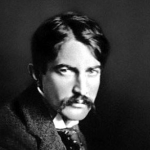I.
Ille Ego
Oh! list to me: for I’m about
To catch the fire of Chaucer,
And spin in doleful measure out
The tale of Johnny Raw, sir;
Who, bent upon a desperate plan
To make the people stare,
Set off full speed for Hindoostan
Upon Old Poulter’s mare.
Tramp! tramp! across the land he went;
Splash! splash! across the sea;
And then he gave his bragging vent—
“Pray who can ride like me?
“For I’m the man, who sallied forth
To rout the classic forces,
And swore this mare was far more worth
Than both fierce Hector’s horses.
“Old Homer from his throne I struck,
To Virgil gave a punch,
And in the place of both I stuck
The doughty mother Bunch,
“To France I galloped on my roan,
Whose mettle nought can quail;
There squatted on the tomb of Joan,
And piped a dismal tale.
“A wild and wondrous stave I sung,
To make my hearers weep:
But when I looked, and held my tongue,
I found them fast asleep!
“Oh! then, a furious oath I swore,
Some dire revenge to seek;
And conjured up, to make them roar,
Stout Taffy and his leek.
“To heaven and Hell I rode away,
Trumped up a diabolic lay;
And cursed them all together.
“Now, Proteus! rise, thou changeful seer!
To spirit up my mare:
In every shape but those appear,
Which Taste and nature wear.”
















Comment form: